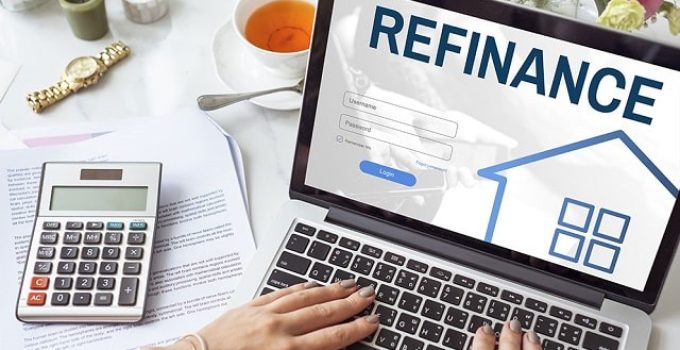Mortgages for home owners are among the most popular kinds of debt for Americans that’s why there’s greater than $1.6 trillion in loans that are new in 2021 only. Fannie Mae predicts that figure to continue rising this year. In the United States, Americans now hold around $17.6 trillion in mortgage debt, and, according to Experian the average balance on a home loan of $220,380. If you’re one of the people who belong to this group there’s no doubt that you’re not the only one.
A lot of mortgage loans come with repayment terms up to 30 years. If you’re in possession of an extended or short-term loan, you must be aware that you are able to make adjustments.
It’s possible that you’re not facing the same economic straits as you were at the time of purchasing your house, and the loan you got might not be the ideal choice in a decade or two years from now. This is where mortgage refinances come into the picture. Before you decide to refinance home in michigan, be sure to search to find a lender that meets your requirements.
What exactly is refinance mortgage?
Refinancing a mortgage loan is the method of obtaining the new loan to cover the existing loan for a home. The new loan – that may come from the lender, or a other lender – will pay off the mortgage, and is satisfied and the loan is closed. Then, you are bound by the terms of your credit until paid in full (or refinanced once more).
The process of refinancing will be like the mortgage loan process in a few ways, but for a lot of people, it’s easier and quicker. It is necessary to fill out and pass through several of the same underwriting procedures similar to when you purchased your house, and verify details such as your credit score as well as your income and debt load. If the loan is approved the lender will give you specific terms for loans and repayment options you can choose from.
The whole process could take up to a couple of days to a full month or more, based on your financial situation, and the kind of loan(s) that are involved So plan your timetable in advance. You should compare different mortgage providers to find out what rate and terms of loans they have and to ensure that your getting the most favorable price. The lender you initially choose may not be the most suitable choice.
7 reasons why you need to consolidate your mortgage
While it’s not for everyone, there are plenty of excellent reasons to think about refinancing your mortgage. There are several reasons to consider refinancing:
- You might be able to lower your interest rate. The rate of interest on your mortgage loan will determine the amount the loan will cost you at the final. A one APR point could mean the difference of tens of thousands in savings over time. If interest rates in the market have fallen or your credit score been improved to qualify for a much low interest, think about refinancing. It’s crucial to do the math here so that you can be sure that your savings are sufficient to cover any closing charges on the new loan. If you could save at least 1 the savings are usually worth it.
- You can alter a monthly payment. Refinancing lets you alter all of your home mortgage’s conditions. If you’re having trouble and require a less monthly payment, for example the refi could increase the term of your loan and provide you with a lower monthly installment even if your interest rate doesn’t increase.
- You can utilize it to take equity from your home. If the value of your home is much more than the amount the amount of debt you have on it the cash-out refinance will allow you to cash out a portion of the money in cash. Then, you can use the funds to repay debt, buy an additional property, pay for major costs (like tuition costs for college) or simply have the cash security net. If you have the cash-out refinance is typically limited to a loan-to value (LTV) between 75 and 80%, in the average. Let’s say you owe $100 on a home that’s now worth $300,000 and you’re left with $200,000 of equity. If your lender permits the LTV of 80 percent, you will get a maximum home loan amount of $240,000. This allows you to make a cash-out of the amount of $140,000.
- You can alter the type of mortgage loan you take out. There are a variety of mortgage loans, which include conventional and government-backed loans. Certain federally-backed loans, like FHA loans, are subject to additional charges and restrictions which homeowners might decide to get rid of as time passes. An owner of an adjustable-rate mortgage may want to change into a fixed rate mortgage. A refinance into a traditional loan could accomplish this.
- You are able to remove the co-borrower. If you have purchased a property that had a co-borrower for example, a parent or even an ex-spouse or spouse, you might want to assume the loan on your own. If your mortgage lender doesn’t allow you to let go of the co-borrower, you could refinance to the loan of yourself (assuming that you meet the requirements).
- It is possible to eliminate the PMI obligation. When you purchase an apartment using a conventional mortgage and put less than 20 percent down, you will generally be expected to pay a monthly Private Mortgage Insurance (PMI) on the loan. If your property’s value rises but you have greater than 20% of equity over time, refinancing may let you drop the PMI obligation prior to the time you plan.
If you believe one or more of the advantages are applicable to your current loan, you might want to consider refinancing now. Contact an expert on mortgages to help you start.
What is the cost to refinance the mortgage?
Cost of refinancing your mortgage is contingent on a variety of variables, including the type of loan, the mortgage lender and the lender, your financial score along with any bonuses or offers.
A typical mortgage refi may involve:
- Costs for closing (including the cost of title and costs)
- Points(paid to lower the new credit’s interest rate)
- New appraisal for your home (often required for refinancing cash-out This helps your lender to understand your home’s present market value)
- Taxes
Recent research from ClosingCorp revealed that the closing cost average for a refinance mortgage in 2020 was $3,398, which included tax-related fees applicable to the refinance. Some lenders lower certain fees, or offer to roll the costs into your new mortgage loan.
When is the right time to consider refinancing your home mortgage?
If you’re thinking about refinancing your mortgage it’s crucial to think about whether the benefits of savings and other advantages surpass the cost. For the majority of homeowners, it would be a good idea to examine refinance figures when:
- The credit score of yours improves. This could lead to lower interest rates as well as better terms for loans.
- Market rates have fallen which means you can get better terms on loans without having to alter any other aspect of your creditworthiness.
- You’ll need to draw cash from the equity of your home.
There is no magic time frame. Refinancing your mortgage is a good option for homeowners of different times and for various reasons. Refinancing too early after purchasing the property can result in negative consequences, such as decreasing your credit score or increasing lender suspicions – however, in general when the numbers are correct refinancing could be the perfect way to alter your mortgage loan to fit you more.
Prior to refinancing, you need to take into consideration the length of time you’ll stay in the house and how much the new loan will help you save. Make sure you note down the time it will take the savings you earn from refinancing to match the costs of the new loan.
Take a look at reverse mortgages too.
For homeowners who are of an age group, a reverse mortgage can be advantageous. Reverse mortgages permit homeowners (62 or over) who have finished paying off or repaid all or a large portion of their mortgage to cash out a percentage of the equity in their home. It is tax-free income. There are many advantages for reverse mortgages..
The reverse mortgage could assist you in reducing your mortgage payments each month (by making use of the savings in the home to settle any amount). The amount you receive will not exceed the value of your home also, meaning you don’t need to be concerned about getting yourself into a financial hole. Also, the cash you receive could be in one lump sum or as disbursements that you can count on to earn a monthly income.
The advantages of reverse mortgages differ than refinancing a traditional way, however. Therefore, you should be familiar with both in order to effectively take advantage of these distinct financial benefits.



